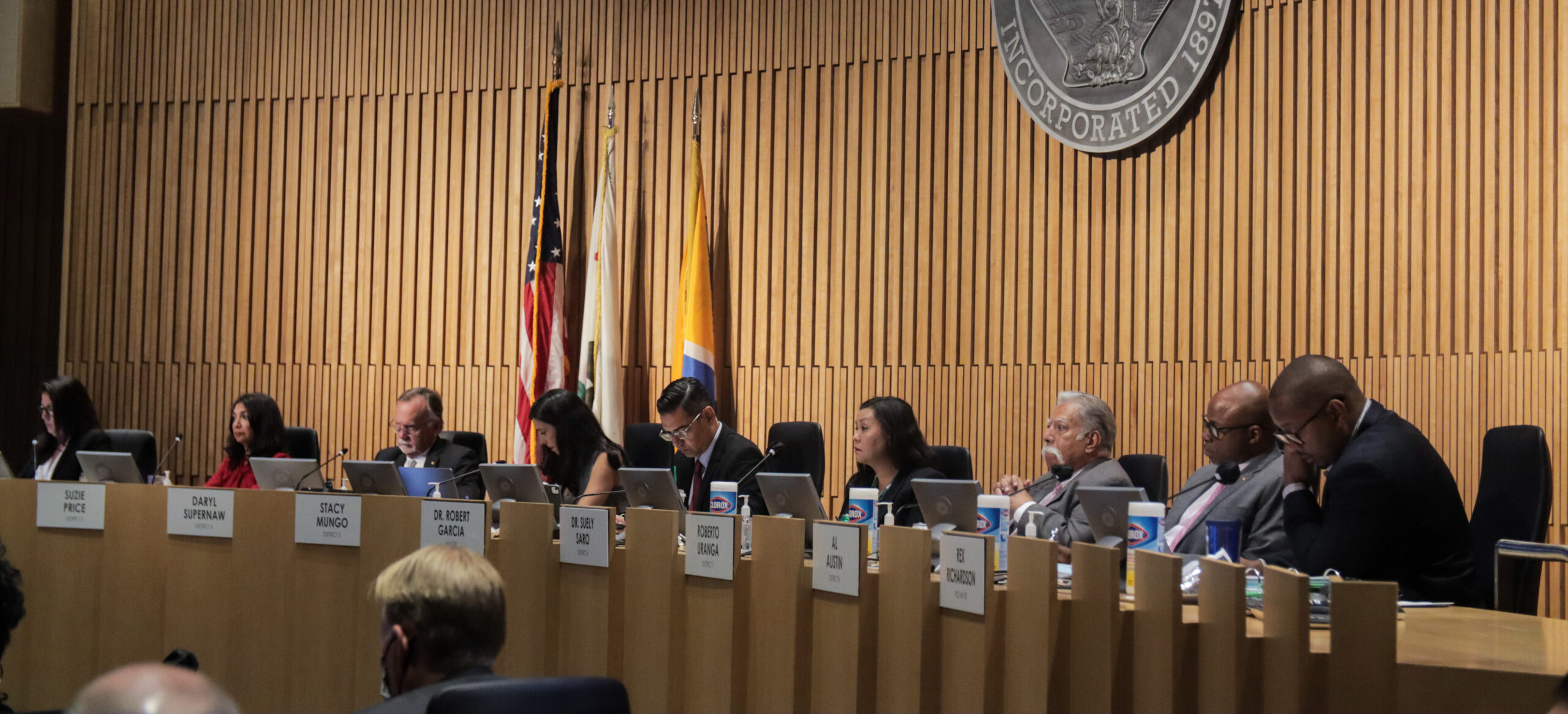Long Beach may loan itself $21.8 million from a fund intended to replace city vehicles in order to pay back its own water department by next month as part of a court order issued earlier this year over unconstitutional fees it had been charging to customers.
The Long Beach City Council will vote Tuesday night on a plan to borrow $21.8 million from the city’s fleet acquisitions fund instead of drawing from city reserves or taking out bonds to pay the debt. The loan would be paid back over 10 years with interest, according to a city report.
Long Beach uses the fund to pay for new vehicles for city employees. In recent years that has included converting gas-vehicles to cleaner hybrid or electric vehicles. The fund has accrued nearly $45 million.
A memo from Financial Management Director Kevin Riper to the City Council said that after the loan, the city should still have sufficient cash to pay for vehicle replacements for the next three years. But an unexpected surge in need to replace vehicles or any increases in vehicle costs could force the city to lease-purchase vehicles, which could add debt costs.
Repayment of the loan is expected to begin in the next fiscal year, with a $436,000 interest-only payment and then average about $2.4 million through September 2032.
The need to take out a loan originates from Long Beach losing a court case earlier this year over fees charged to the city’s water department to access city-owned water and sewer lines, which were then passed on to residents.
The fees were established through Measure M, an initiate approved in 2018 by voters after a lawsuit was filed against the city to stop the transfers. California law prohibits utility providers from charging more than the cost to provide the service to customers. The illegal water fees were being deposited into the general fund, which allowed the city to use millions annually to address needs across the city.
The city appealed a lower court’s ruling that the practice was unconstitutional, but the California Supreme Court declined to take up the case, effectively handing the city a loss and a hefty bill to pay.
As part of the ruling, the city had to transfer $30.8 million back to the water department. It sent $9 million back to the department in March, and then owed the remainder within 180 days of the Supreme Court denying to hear the case.
The Long Beach Board of Water Commissioners voted earlier this year to send all of that money back to customers through monthly credits.
City leaders had originally considered issuing judgement bonds to help pay back the water department, but those bonds could have resulted in interest being paid to bond holders and the payments being stretched out for as long as 20 years.
Riper’s memo said that under the proposed loan, the interest would instead be paid to the fleet service fund and could equal the amount of interest earned had the loan never been approved.
Losing the Measure M lawsuit could have big implications on the city’s budget going forward. This year’s budget has balanced through the use of COVID-19 relief money, something that is not expected to be available next year when the city is projecting a budget deficit of $25.6 million.
Measure M makes up about one-third of that projection with the water department expecting to transfer about $8 million less per year to the city’s general fund after the city’s loss in court.
Water Commission may issue another $21.8 million in rebates to customers

